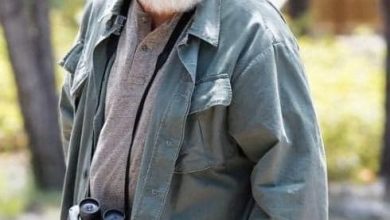
What a Single Flight Revealed About the Power of Kindness and Empathy
It was the last leg of an exhausting business trip—the kind that leaves you running on empty, fueled only by caffeine, counting the minutes until you finally get home. Boarding that evening, my mind was only on sleep. I tossed my bag into the overhead bin, sank into my seat, and let out a long sigh, like someone finally surfacing after being underwater too long. Once airborne, I reclined without a second thought, desperate for a moment of rest.
Then I heard a soft voice behind me.
“Excuse me… could you not lean back so far? I’m having a little trouble breathing.”
The tone was gentle, almost apologetic. I turned, expecting annoyance, and saw her: a woman with kind, tired eyes and a clear baby bump. She wasn’t demanding, just uncomfortable. I was too exhausted to care and muttered something about needing sleep as well before turning back. She offered a faint, understanding smile and stayed silent.
The flight went on, but her words stayed with me: trouble breathing. I should have paused. I should have felt empathy. But I didn’t. I closed my eyes and shut everything else out.
When we landed, I hurried to stand, eager to escape the recycled air and the small twinge of guilt settling in. Reaching for my bag, I noticed her struggling to gather hers, wincing with effort. A flight attendant quickly came to help. As I moved down the aisle, the attendant gently tapped my shoulder.
“Sir,” she said, steady but firm, “the woman behind you was uncomfortable during the flight. She didn’t want to cause trouble, but even small things—like not reclining—can matter a lot to someone in her situation.”
It wasn’t a scolding. It was a fact that hit me squarely. I hadn’t been cruel, but I hadn’t been considerate either. My comfort had taken priority over her well-being. As I walked through the terminal, her words echoed louder than the announcements above.
That brief flight became a mirror I couldn’t ignore. I realized how easily I’d dismissed someone else’s struggle because it didn’t inconvenience me. How often had I done that before? In traffic, in lines, in conversations where I was too busy formulating my response to truly listen? It’s shocking how quickly we can overlook another person’s needs.
By the time I reached baggage claim, the guilt had shifted into reflection. She hadn’t asked for pity—only space. Just a few inches. And I hadn’t given it. Not because I couldn’t, but because I hadn’t thought to. Somewhere along the way, I’d normalized prioritizing myself.
Empathy doesn’t always need fanfare. Sometimes it’s found in the smallest actions—the ones that cost nothing but attention. Offering a smile to a stranger. Holding a door a moment longer. Choosing patience instead of frustration. These quiet gestures shape the world more than grand proclamations ever could.
That flight changed how I move through life. I started noticing things I once missed: the elderly man counting coins at the store, the cashier smiling despite the long line, the parent juggling a crying child on the bus. Each carrying invisible weight, and for too long, I’d ignored it.
Since then, I try to act differently. I check before reclining. I help with overhead bags. When delays happen, I smile instead of sighing. I meet people’s eyes—flight attendants, strangers, anyone I pass. I’ve learned that kindness isn’t about gestures that make headlines. It’s about presence.
The world doesn’t need more speeches on compassion. It needs more quiet practice of it, consistently, without applause. A simple flight can teach lessons you never forget.
I think of that woman often. I don’t know her name or destination, but her presence changed me. She didn’t chastise me. She simply endured—and reminded me that part of being human is noticing each other.
Too often we say, “It’s not my problem,” when we’re tired or self-focused. I’ve said it too. But maybe being human means seeing someone else’s difficulty as, in some small way, ours. Kindness isn’t optional—it’s a responsibility.
Every flight since has felt different. I see the nervous first-time flyer, the exhausted parent calming a toddler, the elderly couple double-checking their gate. I see them. And in seeing them, I see the person I want to be.
True comfort doesn’t come from reclining your seat. It comes from making someone else’s journey a little easier. Empathy isn’t weakness—it’s what makes us human.
That quiet plane ride taught me more than any book or seminar. Life isn’t about arriving faster. It’s about how we treat those traveling beside us.
She showed me that kindness doesn’t need to be loud to be meaningful. Sometimes it’s as simple as not leaning back. And sometimes, that small choice is enough to lift the weight of indifference—if only for a moment.





